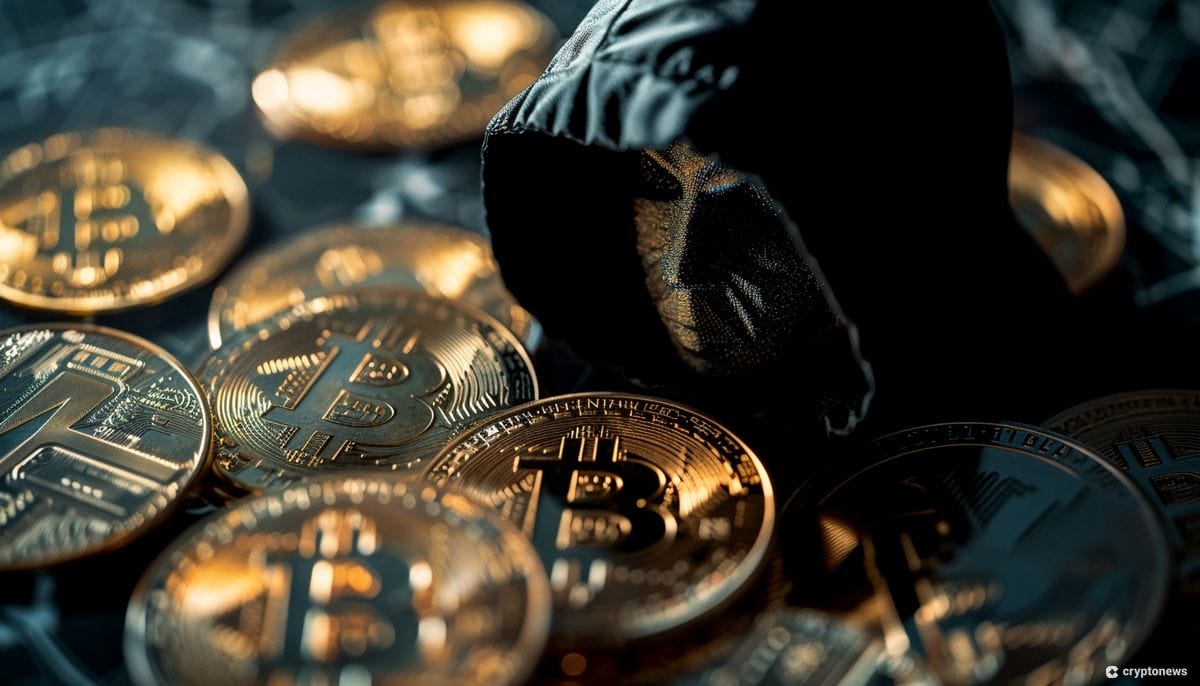
Last updated:
| 2 min read

Keonne Rodriguez, one of the individuals associated with the popular cryptocurrency mixer Samourai Wallet, has entered a plea of not guilty to charges of money laundering.
The United States Justice Department had charged Rodriguez and his co-founder, William Hill, with various offenses related to their involvement with Samourai Wallet.
On April 29, Rodriguez appeared before the U.S. District Court for the Southern District of New York, where he pleaded not guilty to conspiracy to operate an unlicensed money-transmitting business and money laundering charges.
Rodriguez Released on $1 Million Bond
As part of the bail agreement, Rodriguez was released on a $1 million bond.
However, his movements are now restricted, and he is required to wear a location monitoring device.
He will primarily be confined to his residence in Harmony, Pennsylvania, with limited travel permitted in parts of New York and Pennsylvania.
The terms of Rodriguez’s bail also explicitly prohibit him from conducting any activities related to Samourai Wallet or engaging in any cryptocurrency transactions without prior approval.
These measures are aimed at ensuring compliance with legal requirements and preventing any potential continuation of alleged illicit activities.
Samourai Wallet co-founder Keonne Rodriguez pleaded not guilty to two criminal charges tied to creating and marketing the privacy-focused bitcoin wallet application and mixing service.
The charges carry a maximum sentence of 20 years and five years, respectively.
He was… pic.twitter.com/kmWFsKMhhM
— ICO Drops (@ICODrops) April 30, 2024
Meanwhile, William Hill, the chief technology officer of Samourai Wallet, was arrested on the same day as Rodriguez, but he has yet to appear in a U.S. courtroom.
Hill’s arrest took place in Portugal, and authorities are currently navigating the process of extradition.
Rodriguez is scheduled to appear in court again on May 14, where further developments in the case are expected to unfold.
Both individuals face serious consequences if found guilty.
The money laundering charge carries a potential prison sentence of up to 20 years, while the conspiracy to operate an unlicensed money-transmitting business charge could result in a maximum of five years behind bars.
As part of the ongoing investigation, authorities have already taken control of Samourai Wallet’s servers and domain located in Iceland.
US Crack Down on Crypto Mixers
The arrests are part of a broader crackdown by the U.S. government on cryptocurrency mixers, which have been implicated in facilitating money laundering activities linked to hacker groups and terrorist organizations.
The Office of Foreign Asset Control, under the U.S. Treasury Department, has sanctioned platforms like Blender and Tornado Cash, despite facing criticism from industry leaders and lawmakers who argue that such actions could stifle innovation and hinder the legitimate use of privacy-enhancing technologies
Last week, the DOJ rejected Tornado Cash developer Roman Storm’s motion to dismiss criminal charges, arguing that the defense’s filing presented disputed facts that should be weighed by a jury rather than being resolved in an early-stage motion.
Storm, along with fellow developer Roman Semenov, was charged by the DOJ with conspiracy to commit money laundering, conspiracy to operate an unlicensed money transmitter, and conspiracy to violate sanctions laws through the creation and operation of Tornado Cash.
US authorities have alleged that Tornado Cash has been used by criminal entities, including North Korea’s Lazarus Group, for money laundering purposes.


